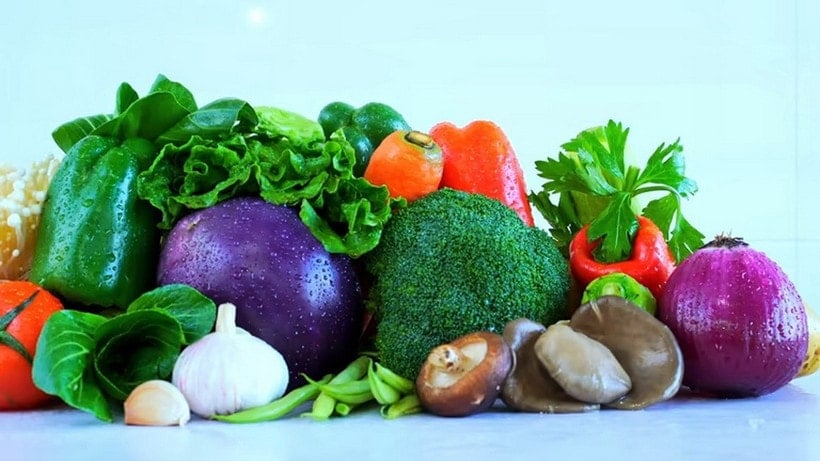
“Eat your vegetables!” - that seemingly simple saying is the most sustainable health advice that modern science is constantly emphasizing.
According to the World Health Organization (WHO), adults should eat at least 400 grams of fruits and vegetables per day to reduce the risk of cardiovascular disease, type 2 diabetes and some types of cancer. However, according to a survey, about 8 in 10 adults in Vietnam still do not meet this recommendation.
Vegetables are more than just a side dish. They are “natural medicine” rich in fiber, vitamins, minerals and antioxidants that help the body fight aging, boost immunity and maintain brain clarity.
Below are the 12 healthiest vegetables that nutritionists recommend should be included regularly in daily meals.
1. Broccoli
Broccoli contains the compound sulforaphane, which has been shown to protect cells and reduce the risk of cancer.
Research from Johns Hopkins University shows that eating broccoli 3-5 times a week can reduce the risk of lung, liver and colon cancer by 30-40%.
In addition, this vegetable is also rich in vitamin C and iron, which helps increase resistance and support blood formation.
2. Kale
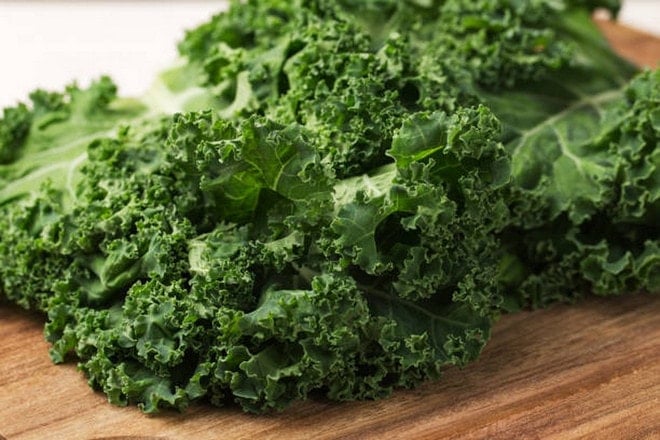
Rich in lutein and zeaxanthin, kale helps protect eyes from harmful blue light, preventing cataracts and macular degeneration.
According to Harvard Health, eating kale regularly also helps lower blood pressure and improve memory thanks to its natural anti-inflammatory effects.
It is also an excellent source of iron, calcium and folic acid for the body.
3. Spinach
Not only famous in the cartoon "Popeye", spinach is actually a "superfood" with iron, vitamin A, C and fiber.
The plant compounds in spinach help activate hormones that create a feeling of fullness, which is beneficial for people who want to lose weight.
Research from the Cleveland Clinic shows that eating spinach regularly helps reduce bad cholesterol and improve heart health.
4. Carrots
The bright orange color of carrots comes from beta-carotene, a precursor of vitamin A which has the effect of beautifying the skin, brightening the eyes and is a strong antioxidant.
According to the National Institute of Nutrition of Vietnam, eating carrots three times a week helps supplement enough vitamin A needed to maintain eyesight, while also helping reduce the risk of skin cancer.
5. Bell peppers

Red, yellow, and green bell peppers are not only beautiful but also a rich source of vitamin C, 3 times more than oranges.
Red peppers contain capsaicin which helps reduce inflammation and boost metabolism; yellow peppers are rich in flavonoids which improve memory; green peppers have phenolic acids which help control blood sugar.
A serving of bell peppers a day can help the body absorb iron and increase natural resistance.
6. Beetroot
Beetroot contains betalain pigments and natural nitrates, which help lower blood pressure, improve blood circulation and reduce cholesterol.
According to Harvard Medical School, beetroot juice can boost exercise performance and improve vascular health in middle-aged adults.
This root vegetable also provides folate and potassium, which support liver function.
7. Sweet potatoes
Sweet potatoes are a rich source of carotenoids and soluble fiber, which help stabilize blood sugar and improve bowel function.
A study at the University of Tokyo found that regular consumption of sweet potatoes increases vitamin A absorption and protects the liver from oxidative stress.
Sweet potatoes also contain manganese, copper, iron, and potassium, which help balance electrolytes.
8. Mushrooms
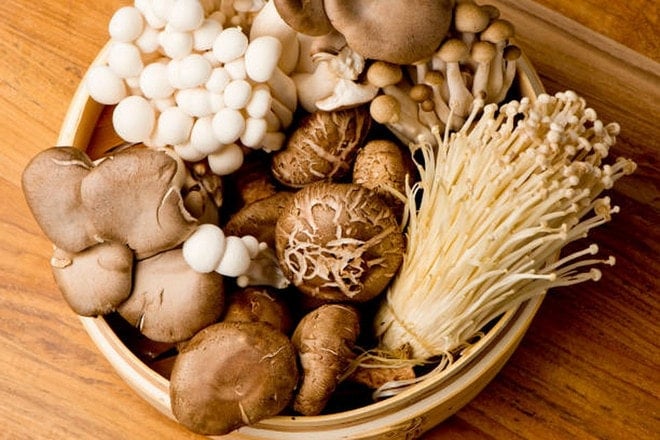
Although not a plant, mushrooms contain natural vitamin D, which is rare in other vegetables.
According to Cleveland Clinic, regular mushroom consumption helps reduce the risk of Parkinson's, Alzheimer's, stroke and cancer.
Mushrooms are also rich in prebiotics, which nourish beneficial intestinal bacteria and increase nutrient absorption.
9. Purple cabbage
Cabbage's characteristic purple color comes from anthocyanin, an antioxidant that helps protect the heart, improve memory, and reduce the risk of cancer.
One cup of purple cabbage provides nearly 50% of your daily vitamin C needs, while also adding vitamin K and fiber to your digestive system.
10. Garlic
Garlic contains polyphenols and allicin, two compounds with anti-inflammatory, antibacterial and cholesterol-lowering properties.
Research from Johns Hopkins Medicine shows that eating raw garlic 2-3 times a week reduces the risk of heart disease by 25% and boosts immunity during cold weather.
Garlic also provides zinc, potassium and phosphorus, which are very beneficial for the elderly.
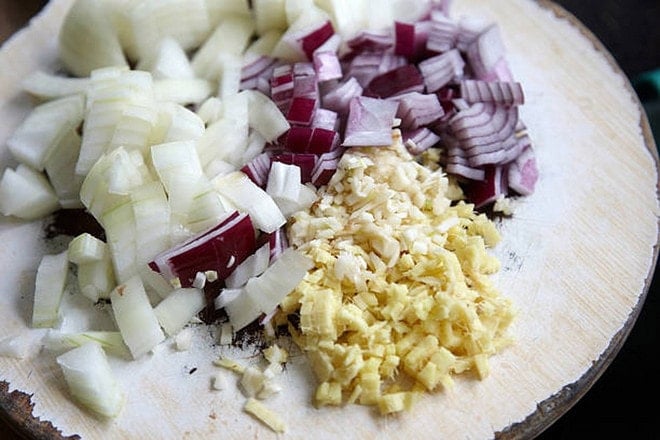
11. Onion
Onions not only add flavor to dishes, but are also a "storehouse" of flavonoids and quercetin, which help reduce inflammation, fight depression and prevent gallstones.
According to the American Journal of Clinical Nutrition, onions have the ability to increase bone density and reduce the risk of colorectal cancer when used regularly.
12. Eggplant
Eggplant contains phytochemicals that help regulate blood sugar, lower blood fat and reduce blood pressure.
This fruit is also rich in soluble fiber, manganese and potassium, which contributes to weight control and prevention of metabolic syndrome.
How does the nutritional value of vegetables change between preparation methods?
All vegetables provide healthy nutrients to the body. However, certain ways of preparing vegetables can help retain their beneficial vitamins and minerals better.
- Fresh vegetables: This is the basis for assessing nutritional content. However, even with fresh vegetables, ripeness can affect nutritional content. And the time of harvest can also affect the amount of nutrients remaining.
- Frozen vegetables: Their nutritional content is similar to fresh vegetables. However, the beta-carotene content may be lower in some frozen vegetables.
- Boiled vegetables: Boiling can reduce the nutrient content of some vegetables. This is because vitamins can "leak" into the water.
- Steamed vegetables: Steaming is probably the best way to maintain or even improve nutrient absorption. For example, steaming broccoli can increase the absorption of this vegetable's antioxidants and polyphenols.
- Fermented vegetables (pickled cabbage, kimchi): The fermentation process retains most of the nutrients and provides additional probiotics that are good for the digestive system.
Source: https://baohaiphong.vn/12-loai-rau-cu-nen-an-thuong-xuyen-de-song-khoe-va-keo-dai-tuoi-tho-525651.html


![[Photo] Closing of the 14th Conference of the 13th Party Central Committee](https://vphoto.vietnam.vn/thumb/1200x675/vietnam/resource/IMAGE/2025/11/06/1762404919012_a1-bnd-5975-5183-jpg.webp)





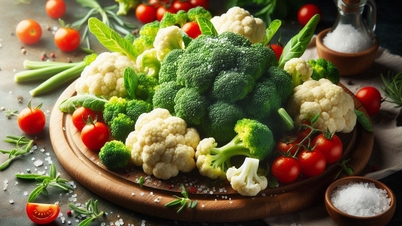





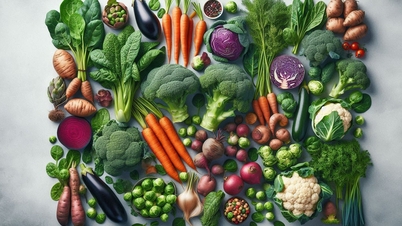


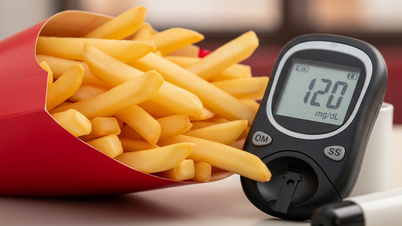






























































































Comment (0)